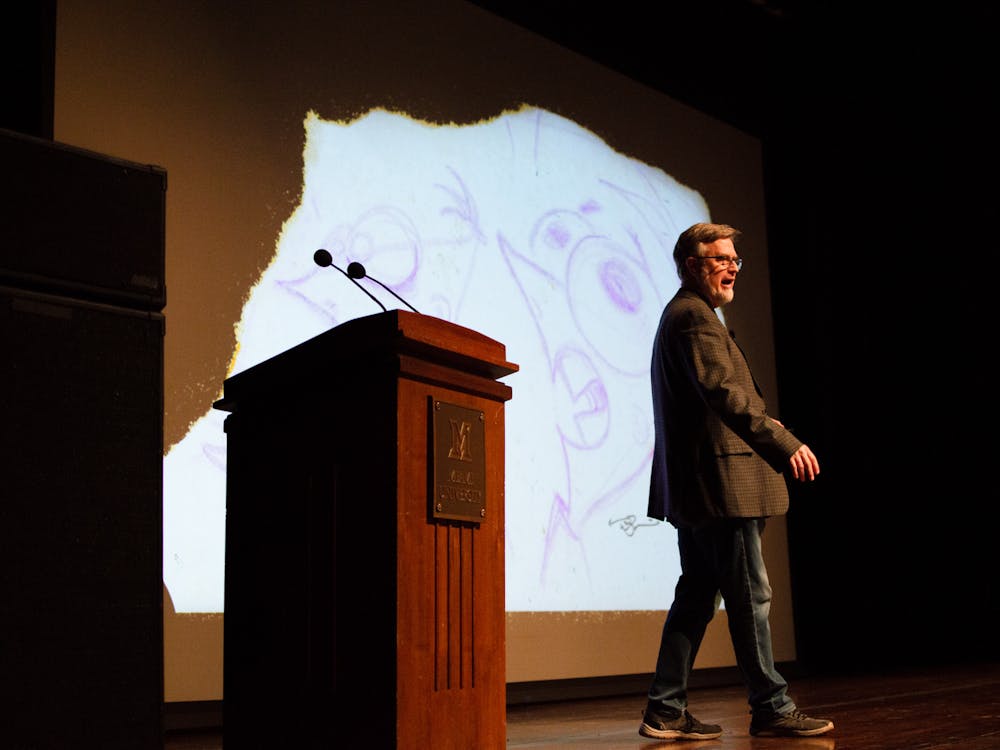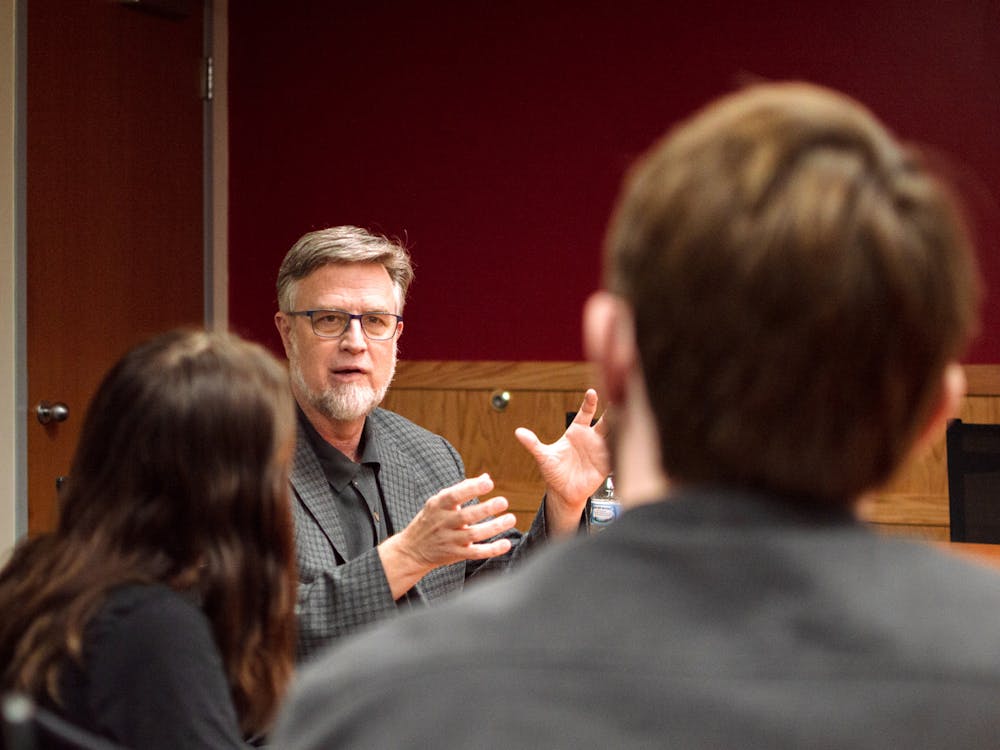By Tali Hunt, For The Miami Student
Photo contributed by Rob Abowitz
Trash audits conducted by Miami University's Eco Reps over the past few months found students on Miami's campus are throwing away more than a quarter of their trash that could be recycled.
The Eco Reps formed a committee to plan the trash audits at the start of the 2014-2015 academic year. The trash audits began in October.
Scott Hall was the first residence hall to be audited by the Eco Reps. On Oct. 28, Eco Reps measured the 104 pounds of trash and 29 pounds of recycling gathered from Scott. The Eco Reps' measurements showed 28 percent of the waste thrown in the trash could have been recycled. Similar results were found in Minnich Hall on Nov. 5.
Hahne Hall was audited on Nov. 12. The Eco Reps measured 98.8 pounds of trash and 36.3 pounds of recycling. Almost 37 percent of Hahne's trash could have been recycled. This is the highest percentage of misplaced waste measured by the Eco Reps to-date.
According to Kelsey Ankerman, a sophomore and member of the Eco Reps trash audit committee, the Eco Reps decided to start doing trash audits because they were curious about students' recycling habits and thought it would be a good way to raise awareness about how much recyclable material is wasted.
Miami's Eco Reps attempted their first trash audit of the semester in Anderson Hall on Wednesday, Feb. 25. However, it was postponed when their scale broke, making it impossible to weigh the trash or conduct the audit.
The Eco Reps decided that each semester, at least one residence hall from every quad will be audited. On the day of an audit, the housekeeping staff working in the selected residence hall collects everything students have thrown into the trash and recycling bins throughout the building.
Eco Reps then sort through the collected waste, a process which takes them about an hour.
"We train on what's recyclable or not during our meetings to help trash audits run more efficiently," Cassidy Venema, a junior and the Eco Rep leading the trash audit committee said.
The Eco Reps weigh the bags of trash before and after they sort through them.
Enjoy what you're reading?
Signup for our newsletter
According to Rob Abowitz, associate director of residence life and trash audit coordinator, the bags are weighed to give building residents a number to see how much waste they could have placed in the recycling, instead of in the trash.
The day after a trash audit, the Eco Reps trash audit committee meets with Abowitz to calculate the results.
"The percentages that could have been recycled give us a comparison between different halls," Austen Rubenstein, a member of the trash audit committee, said.
After the results of an audit are gathered, the Eco Reps send an email to all students living in the hall. The Eco Reps said they want students to know they have been audited, what the results were, and hope the students will work to lower the percentage of misplaced waste moving forward.
"If we got a number that was around five percent, I'd be happy," Venema said.
There are three trash audits scheduled for the remainder of the semester on March 10, April 2 and April 15.
"[Eco Reps] promote sustainability in the residence halls," sophomore Emily Gillispie said.
Every residence hall on campus elects at least one Eco Rep. Eco Reps are responsible for promoting sustainability and how they are helping students live more sustainably with bulletin boards in the halls they represent. These boards and fliers are how most students know of Eco Reps.
"We're really trying to make a difference in opinions and actions on campus," Venema said.




